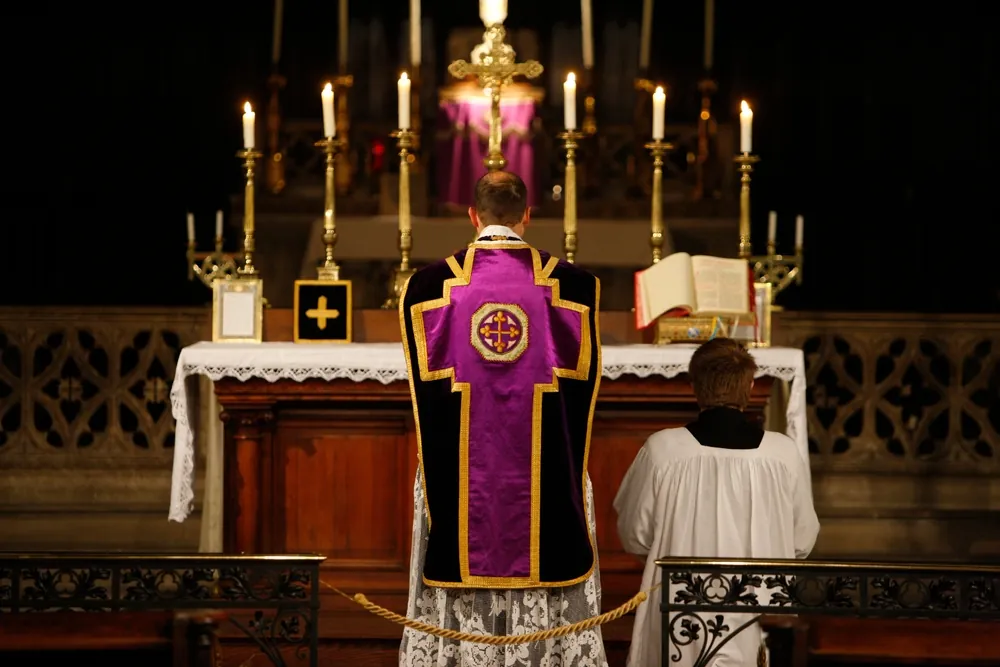A new lawsuit filed in Miami-Dade Circuit Court has resurfaced one of Florida’s most disturbing clergy abuse cases involving former Catholic priest Neil Doherty, who was convicted in 2013 for a string of sexual offenses. The civil lawsuit, filed in June, accuses the Archdiocese of Miami of failing to protect a teenage boy from Doherty’s repeated abuse in the mid-1990s. The plaintiff, identified only as John Doe 8, is represented by attorneys from Herman Law, who allege that Doherty groomed and assaulted the victim at his residence while serving as a priest under the Archdiocese, the Tampa Bay Times reported yesterday, per Yahoo! News.
According to the complaint, the alleged abuse occurred when the plaintiff was about 16 years old. Doherty, who was employed by the Archdiocese from 1969 until his removal in 2002, was convicted a decade later and sentenced to 15 years in prison. He served 10 years before being released in 2023. Doherty is now registered as a sexual offender and resides in Orlando, according to Florida state records.
A plaintiff’s attorney called Doherty “probably the most prolific pedophile priest in U.S. history,” claiming that he may have harmed “thousands of children over the course of about 40 years.” The lawsuit argues that church leaders knew of Doherty’s dangerous behavior as early as the 1950s but failed to remove him from ministry. It cites internal evaluations from the 1990s recommending that he have no access to children and alleges that prior complaints were ignored by Archbishop Edward McCarthy and other officials.
In response, the Archdiocese of Miami said it is “in the process of responding to a lawsuit involving allegations of sexual abuse of a minor by a former priest that occurred over twenty-nine years ago.” The statement added, “As always, the Catholic Church’s concerns are for the victims and a prevailing sense of justice and healing.” The Archdiocese emphasized that Doherty was permanently removed from ministry in 2002 and that all credible allegations are reported to the appropriate state attorney’s offices.
This latest filing follows at least four other lawsuits in the past five years naming Doherty as the primary abuser, involving seven additional plaintiffs identified as John Doe 1 through 7. Earlier lawsuits were reportedly settled, though details remain confidential. In 2006, the Miami Herald reported that the Archdiocese had settled six civil suits, including two involving Doherty, for $750,000.
Court filings allege that Doherty used his background in psychology and his position as a counselor to gain access to minors, often under the guise of mentorship or therapy. He allegedly invited children, including those not part of his parish, to the church playground and gained their trust with gifts, money, and odd jobs around the parish. One attorney said Doherty’s ability to manipulate others “under the pretense of guidance and care” made him especially dangerous.
The Archdiocese of Miami has faced dozens of claims of clergy sexual abuse over the years. According to the watchdog group BishopAccountability.org, at least 44 priests in the Archdiocese have been accused of abuse. The Doherty case became a symbol of the broader national reckoning that began in 2002, when clergy sexual abuse scandals swept through dioceses across the United States.
In the years since, the Catholic Church has implemented a series of reforms intended to prevent future abuse. Following the 2002 meeting of the U.S. Conference of Catholic Bishops in Dallas, the Archdiocese of Miami established strict “zero tolerance” measures. These include background checks for all clergy and employees with access to children, mandatory abuse prevention training, and safety education for children in Catholic schools and parish programs.
Despite these reforms, a 2025 Pew Research Center survey found that 62 percent of U.S. Catholics believe clergy sexual abuse remains an ongoing problem, while only 31 percent believe it is mostly a problem of the past. Many survivors and advocates argue that internal reporting systems can retraumatize victims or discourage them from coming forward.
The lawsuit filed on behalf of John Doe 8 also underscores Florida’s evolving legal landscape for abuse survivors. In 2010, the state eliminated the statute of limitations for criminal prosecution of sexual abuse involving minors under 16, though that change was not retroactive. For civil cases, victims have until age 25 or four years after they connect their injuries to the abuse to file a claim. Attorneys for John Doe 8 argue that their client only recently recognized the connection between the trauma he endured and its long-term psychological effects.
“My client finally had the courage to come to terms with what happened to him and the impact it’s had on his life,” the attorney said. “A lot of survivors deal with certain injuries like depression and anxiety, and they haven’t ever figured out what was the cause of it. It doesn’t happen until much, much later in life.”
Doherty’s case remains one of the darkest chapters in Florida’s clergy abuse history, both for its scope and the number of alleged victims who came forward. Advocates for survivors say cases like this demonstrate why reforms and legal accountability must continue to evolve.
If you are a survivor of clergy sexual abuse in Florida or elsewhere, you may still have legal options. Learn more about your rights and potential next steps through our Catholic Church Sexual Abuse Lawsuit Guide.
You may also fill out the secure, confidential form below to receive a free case review.




